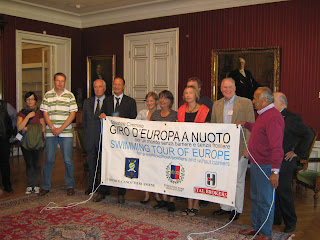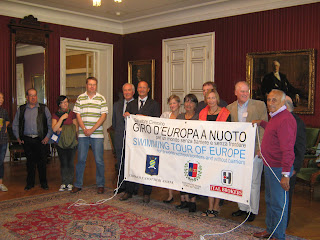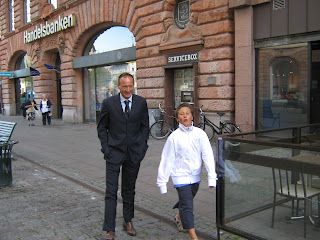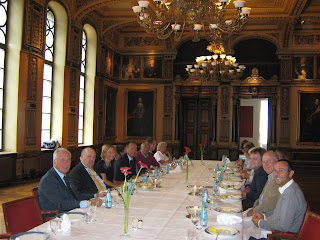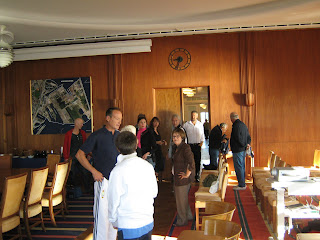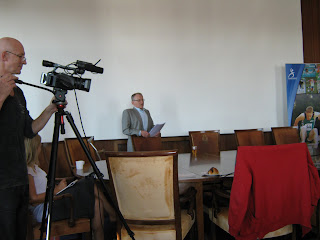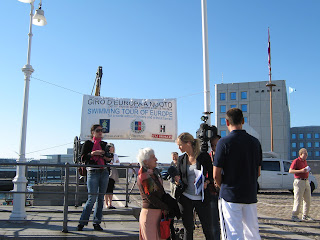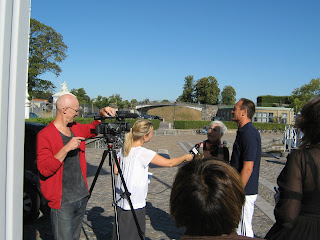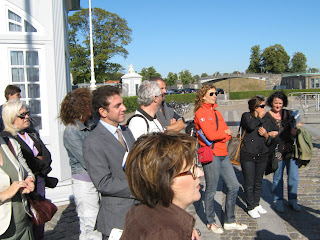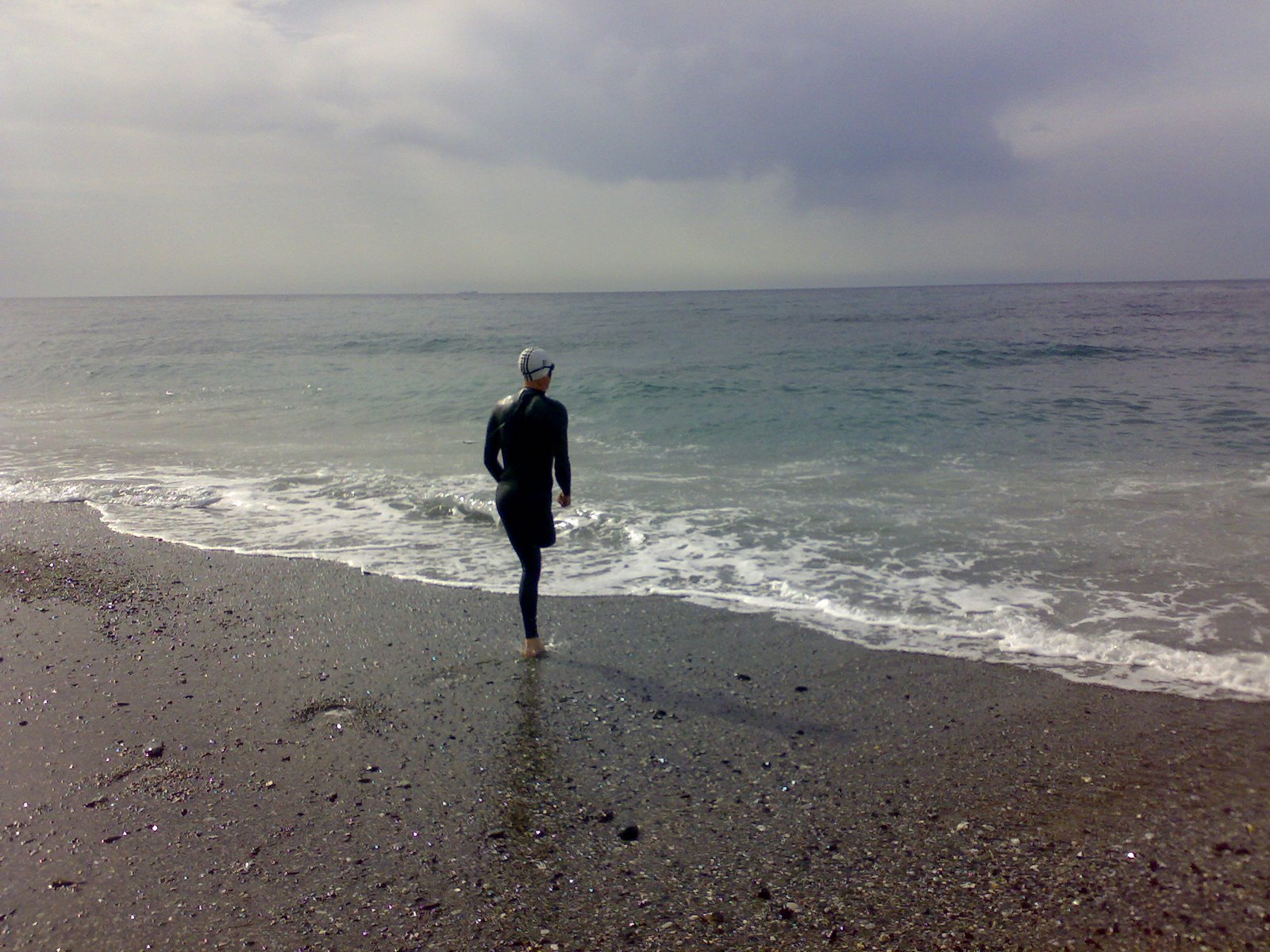xxxxxxxxxxxxxxxxxxxxxxxxxxxxxxxxxxxxxxxxxxxxxxxxxxxxxxxxxxxxxxxxxxxxxxxxx
Rome, 28th September 2009
Yesterday, 27th September, I concluded an extraordinary experience which took me around Europe for five months. If I think of the time in which I was planning this project, I feel as if I have lived a dream come true. The dream wasn’t that I successfully concluded a tough, but not impossible challenge, but in the results I achieved from a human point o view.
During these five months, I’ve discovered some very special people, full of enthusiasm and true testimonials of the word solidarity. To find friends with whom to share a project is already in some ways a victory and at this moment I feel I am a winner! It’s in Sport, in this healthy and marvellous environment, that for the first time I understood that diversity can be an added value.
The reasons which brought me to attempt such a challenge, starting with my physical disability, are an attempt to break down architectural barriers, and above all social/mental barriers, to ensure respect and dignity and the right to liberty and autonomy for disabled people, so that we feel fully integrated in society.
In Italy there are over 5 million people with physical disabilities with 17,000 new cases each year, an average of around 47 people every day. Important numbers, but very few people are aware of them. Numbers which of course, describe disability as a problem to fight and prevent, but above all as a situation which needs to be recognized as normal in society. This requires services which must be continually improved and modernized, and technological innovation which will help disabled people to live better lives, a dream which is still much too far away from the reality of many.
In particular, given my specific disability, I’m fighting for a precise objective, that the current national agreement for the distribution of prostheses and wheelchairs be updated. This document dates back to 1992. During the past 17 years, scientific research has taken giant strides. It’s evident that the list is dated and obsolete and doesn’t take into account new technology, obliging disabled people to use old equipment which is reimbursed by the national health service or to undertake the difference in expense on their own in order to obtain the more technologically advanced equipment which is available on the market. Likewise, the list doesn’t contemplate reimbursement for prosthesis and wheelchairs which are regularly supplied by the respective national health services of other European countries.
Technological progress today can offer an enormous benefit to the five million Italian disabled people. A study by the Bocconi University in Milan in 2004 showed that the latest prostheses can offer a huge improvement to the quality of life, at the same price as the older outdated models which are offered by the Italian national health service.
As long as the national health service continues to think only of saving money, providing budgets which are totally incongruent with reality, Italian disabled people will have to pay off their own backs for choices which are made for apparent short term savings with respect to an investment which if higher in the beginning would give rise to lower social and sanitary costs in the years to come.
This is my battle, these are the reasons which pushed me to take up the swimming Tour of Italy challenge first, and then the Tour of Europe for a world without barriers or frontiers, to encourage institutions to wake up and look around, and to show that sport, swimming in particular, can be a strong ally in helping the life of the disabled.
Yesterday I swam 34 km in a marvellous sea. I crossed three states, starting in Croatia from the Port of Salvore, passing by the magnificent coast of Slovenia and arriving in a beautiful village called Muggia at the local sailing club. It wasn’t easy by any means. Sometimes there was a strong wind (the Borina), sometimes there were waves which made the crossing more difficult, but thanks to the warm encouragement I had throughout from the boats which accompanied me, and thanks to the presence of Filippo Tassara, Luca Baldini, Luciano Martinuzzi and the cheers of Barbara Pozar, I concluded the crossing in nine hours. We left Port Salvore at 8.45 am and reached Muggia at 5,30 pm.
Before starting, I was received by the Mayor of Umago, Vili Bassanese, the Deputy Mayor Veljko Ivančić and the counsellor for social activities in Umago, Dimitrij Sušanj. Also at the meeting were the President of Panathlon Giuseppe Donno, Barbara Pozar, the Deputy President of Triestina Nuoto, Alberto Scherani, the Deputy Mayor of Capodistria, Sergio Lupieri, The Regional Counsellor for Friuli Venezia Giulia, Nerio Nesladek, Mayor of Muggia and Walter Godina, Deputy President of the Province of Trieste, who was the artefice of what proved to be a day which will be unforgettable for all those who took part.
On arrival I was welcomed by hundreds of people spreading along the coastal road up to the Sailing club, which was full of celebrating crowds and the unmistakable voice of Franco Bloccari, Deputy President of CONI Trieste, who animated the crowds until my arrival.
At around two miles from my destination, I was delighted by the presence of tens of boats, including those of the Carabinieri, the Police, the Mayor of Muggia Nerio Nesladek, of Sergio Lupieri, Regional counsellor, and of tens of canoes paddled by students from the Collegio Adriatico del Mondo Unito and children in Optimist sailing boats from the club, as well as fellow swimmers young and older from Triestina Nuoto.
Such participation and spontaneous warmth not only filled me with joy, but I am sure that it will help to achieve the final objective which I have set myself and which many of us are now striving to achieve.
It wasn’t easy to plan and undertake this project which would not have come about without the support of the Circolo Canottieri Aniene, Fondazione Roma and Italbrokers. For this I thank President Giovanni Malagò, Presidente Emmanuele Emanuele and Stefano Giovannini, for their faith in me which fills me with pride and strength.
Thank you.
Salvatore Cimmino

